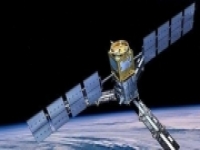PARIS—The first four of 12 satellites in a new constellation to provide affordable, high-speed Internet to people in nearly 180 "underconnected" countries were blasted into space on today.
The orbiters, part of a project dubbed O3b—for the "other 3 billion" people with restricted Internet access—were lifted by a Russian Soyuz rocket from Kourou in French Guiana at 7:27 pm GMT, according to a live broadcast on the website of launch company Arianespace.
The project was born from the frustrations of U.S. Internet pioneer Greg Wyler with the inadequacy of Rwanda's telecommunications network while travelling there in 2007.
Wyler came up with a plan to bypass costly ground-based infrastructure like fiber-optics or cables by deploying a constellation of small satellites around the equator to serve as a spatial relay between users and the worldwide web using only satellite dishes.
Such a system would cover a region between the latitudes of 45 degrees North and 45 degrees South—he entire African continent, most of Latin America, the Middle East, southeast Asia, Australia and the Pacific Islands.
There are already geostationary satellites providing this type of services, but at a prohibitive cost for many end-users in this region.
Existing satellites generally obit at an altitude of some 36,000 kilometers (22,000 miles) above Earth, weigh in at a hefty four to six tons each, and take much longer to bounce a signal back to Earth, according to a background document compiled by O3b Networks.

